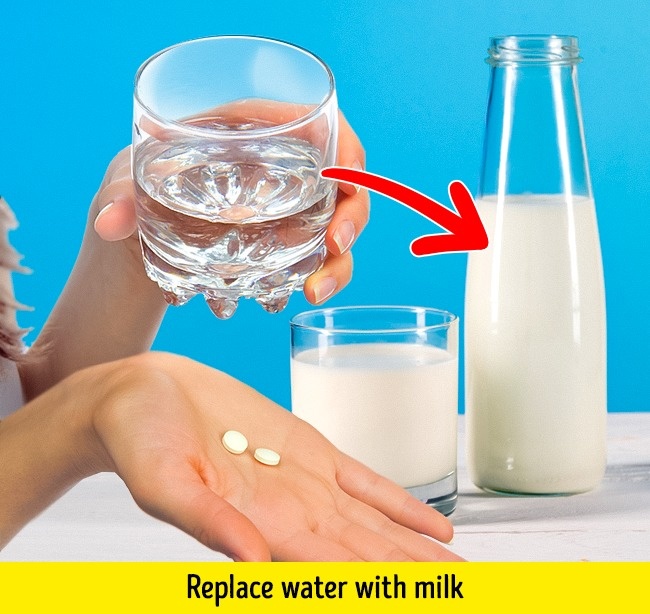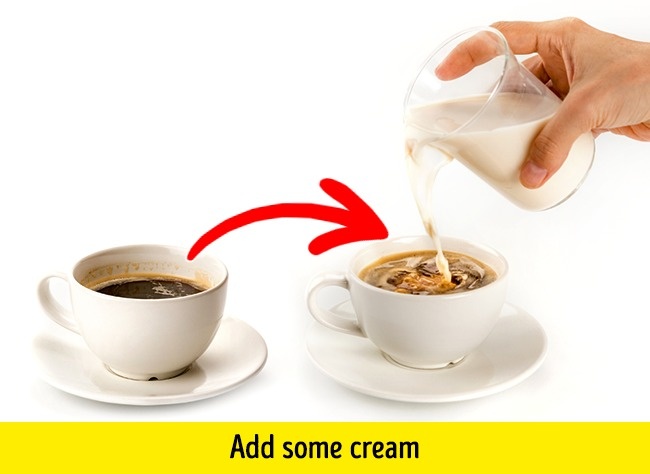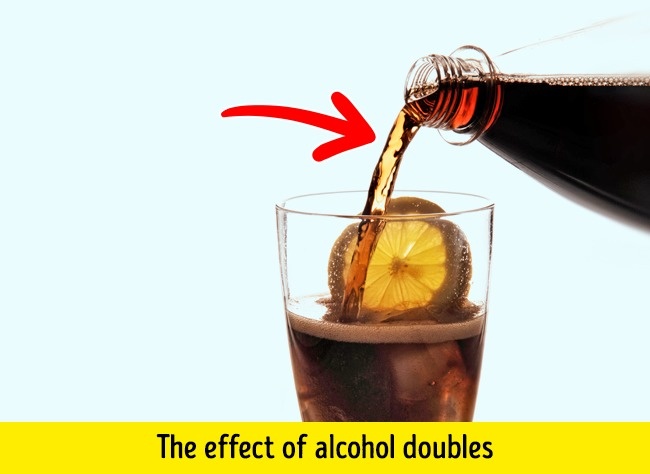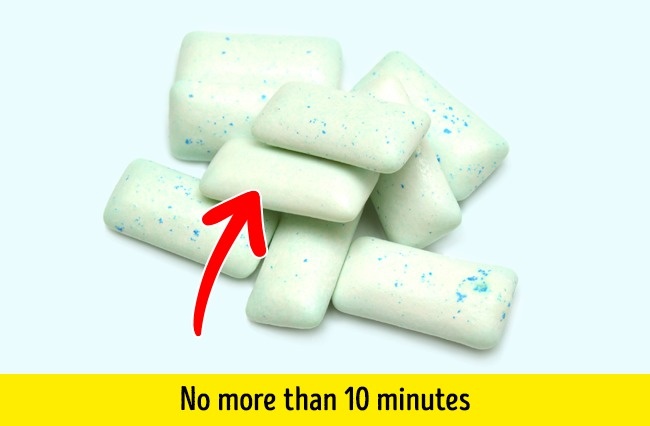“You are what you eat” is an adage known to all. But what we do before a meal also has a great impact on our health.
We will show you 6 things you can’t do on an empty stomach (at least 2 hours after your last meal). As a bonus, you’ll find information on what you can do when you’re hungry at the end of the article.
What Shouldn’t Do In Empty Stomach?
1. Take Anti-Inflammatories

Aspirin, paracetamol, and other non-steroidal anti-inflammatory drugs (NSAIDs) cannot be taken on an empty stomach. Not only does it reduce its effectiveness, but it also causes serious health problems (such as gastric bleeding).
Read here about other medications that should not be taken on an empty stomach.
Tip: Milk reduces the negative effects of NSAIDs. If not available, you can wash the drug with plenty of water.
2. Drink Coffee

Even decaf coffee stimulates the production of acid that can cause heartburn and other digestive tract problems if drunk on an empty stomach. Skipping breakfast even after coffee can lead to serotonin deficiency and a gloomy mood for the rest of the day.
Tip: If you can’t stop drinking coffee early in the morning, drink it with milk or cream – the fat in milk will reduce the negative effects. Choose natural coffee instead of lyophilized.
3. Drink Alcohol

Without eating, the alcohol absorption rate increases by a factor of 2 and is the same as during intravenous injection. On the other hand, the elimination of alcohol breakdown products decreases, causing a severe hangover.
The rapid effect of alcohol on the body doesn’t go without negative consequences for the liver, heart, and kidneys.
Tip: If the situation doesn’t allow you to refuse a drink, give preference to chilled non-carbonated beverages as they are absorbed more slowly. Better yet, eat at least one small sandwich, ideally buttered.
4. Chew gum

The digestive acid produced while chewing gum destroys the lining of an empty stomach; Excessive indulgence with the gums can lead to gastritis. It is also scientifically proven that people who chew gum prefer junk food (chips, candy) rather than fruits and vegetables.
Tip: Chewing gums that contain natural sweeteners (xylitol, sorbitol) are less harmful than those that contain sugar, cyclamate or aspartame. Avoid chewing gum for more than 10 minutes, even on a full stomach.
5. Go To Bed

Hunger and low glucose levels prevent us from falling asleep and cause shallow sleep and early awakening. Interestingly, lack of sleep increases the level of hunger hormones. This is why we eat more the next day after skipping dinner.
Tip: Gorging yourself before bed is also a bad idea. Dairy products are the best solution, as they contain magnesium and calcium. These elements will guarantee a deep sleep.
6. Intense Training

There is an opinion that exercise on an empty stomach burns more calories. In fact, it does not influence fat loss. Muscle loss, on the other hand, is real. Exercise intensity is also reduced as the body lacks energy.
Tip: Replace intense training with aerobic exercise. If you have digestive problems, it is best to have a snack before any type of exercise, because physical activity induces the production of gastric juice, harmful to an empty stomach.
Bonus: What You Can Do When You’re Hungry
You are probably guessing that the best thing to do is to eat something. But there are other less obvious things to do on an empty stomach.
Solve problems. Your ability to concentrate and attentiveness is sharpened when you are hungry. According to researchers, this is the legacy of our ancestors who had to concentrate all their efforts to obtain food. The hunger hormone ghrelin also helps to perform various tasks, stimulating brain activity.
Make choices. If you can’t decide what to choose: a red skirt or a jean jumpsuit? – Try to do it on an empty stomach. Research shows that hunger leads people to make more successful, albeit more impulsive, decisions. Obviously, it is best not to use this method when financial, relationship or health issues are at stake.


